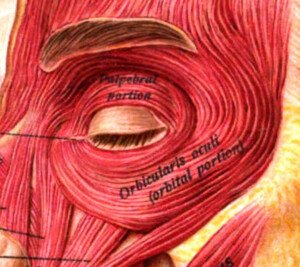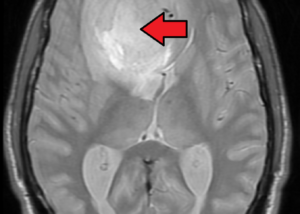Do you ever get twitches right below the eye, just above the cheek?
This kind of twitching can appear out of nowhere and be persistent.
If this has been going on for several days straight and especially longer, you may be worried about a neurological disease such as multiple sclerosis, Bell’s palsy or even something deadlier.
What’s really going on when the area just below your lower eyelid keeps on twitching?
“Muscle twitching (muscle fasciculations) around the eyes, especially at the lower eyelid, is quite common and can be worrisome to many people,” says Natasha Fuksina, MD, an internal and integrative medicine specialist who combines traditional and functional medicine to restore health and function.
“It occurs as rhythmic, involuntary contractions in the muscle around the eye, called the orbicularis oculi,” says Dr. Fuksina.

“It seemingly comes from nowhere but usually can be traced to fatigue, anxiety, stress, dehydration, electrolyte imbalance and possibly caffeine consumption.”
It may also arise from rubbing that area when feeling stressed, tired or when removing makeup.
Dr. Fuksina says, “It is usually self-limited and goes away in a few days. In some cases it becomes chronic and represents a nuisance to the patients.
“It can happen more in females and in colder weather.”
The fasciculations may even be caused by the daily pulling down of the skin below the eye when putting in contact lenses.
How to Help Prevent the Area Under Your Eye from Twitching
First off, if you’ve been rubbing a finger under your eye, for whatever reason, stop this.
When removing makeup, be as gentle as possible. It’s not the skin that twitches, it’s the muscle beneath.
But rubbing hard or frequently on the skin can irritate some muscle fibers. The muscles in that area are tiny. It doesn’t take much to annoy them.
“It can be treated with folic acid, calcium, various vitamins and potassium,” adds Dr. Fuksina.
Magnesium may also help. Incorporate more magnesium-rich foods into your diet.
Foods like spinach, almonds, pumpkin seeds and bananas are good sources. Or, you can take a daily magnesium supplement.
“Getting restful sleep and eliminating stress may be all that is needed to resolve the eye twitching,” says Dr. Fuksina.
Also make sure that you are plenty hydrated. Muscles love water.
“If muscle twitching (fasciculations) spread to other muscle groups, such as arms, legs and are associated with muscle weakness, that would necessitate a visit to a doctor to rule out more serious underlying conditions.”
Here is how you can the difference between “perceived” muscle weakness and actual clinical weakness.
 Dr. Fuksina is the founder of astraMDhealth, which includes telemedicine. Double board certified in internal and obesity medicine, she focuses on a personalized approach, including metabolism and genetic makeup, to customize treatments and preventive care.
Dr. Fuksina is the founder of astraMDhealth, which includes telemedicine. Double board certified in internal and obesity medicine, she focuses on a personalized approach, including metabolism and genetic makeup, to customize treatments and preventive care.
 Lorra Garrick has been covering medical, fitness and cybersecurity topics for many years, having written thousands of articles for print magazines and websites, including as a ghostwriter. She is also a former ACE certified personal trainer.
Lorra Garrick has been covering medical, fitness and cybersecurity topics for many years, having written thousands of articles for print magazines and websites, including as a ghostwriter. She is also a former ACE certified personal trainer.
.



























